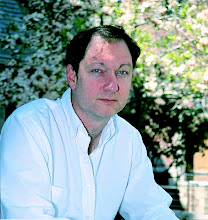The Abortion Debate Gets Heated
"To speculate that abortion is responsible for various and sundry social trends is irresponsible and misses critical points," she said.
"Abortion has always been an option that women at all socioeconomic levels have considered, and many abortions are performed for medical reasons. Trying to correlate abortion with social trends smacks of pseudo-science and shows little understanding of women's lives and decisions," Signer added. . . . .
John Donohue also refused to comment on the actual research, but was reduced to saying this: "I am a social scientist, however, so Lott's behavior has in my mind, put him outside the bounds of scientific discourse." That will certainly settle the debate, though I can understand why Donohue is reluctant to actually discuss the facts on this issue. Since John Whitley co-authored this paper with me, does Donohue's statement tar Whitley also?
Donohue also doesn't comment on recent issues regarding his co-author Levitt.
Labels: Abortion, Freedomnomics, JohnDonohue






